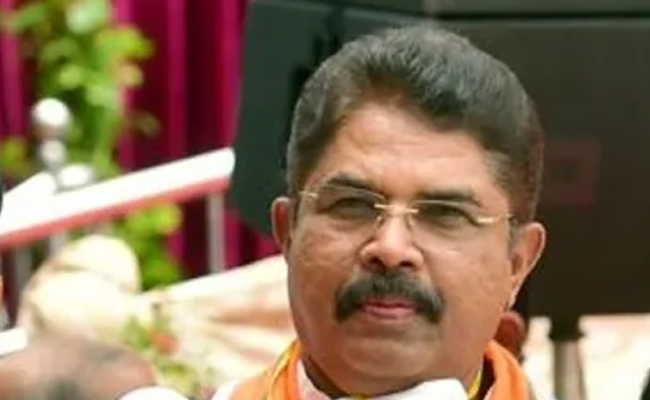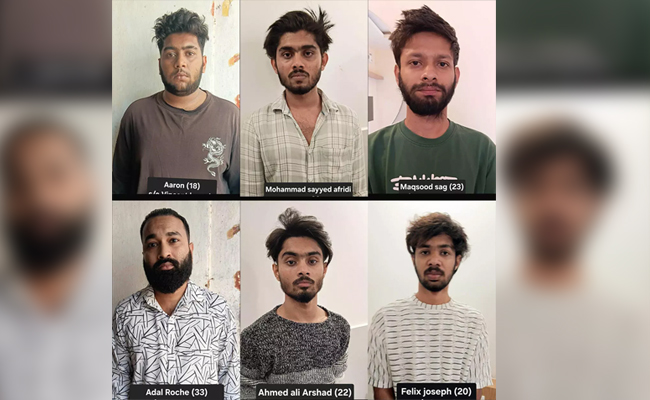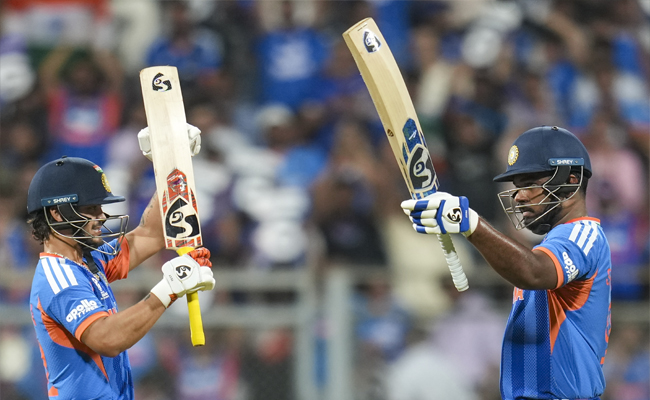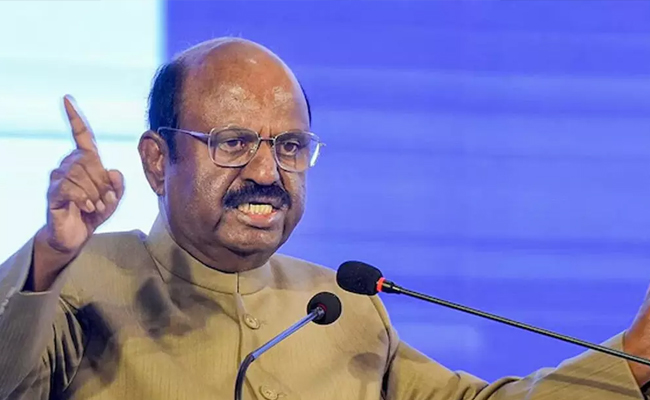New Delhi, June 13: Health Minister J.P. Nadda on Wednesday said India has made much progress in eliminating lymphatic filariasis (elephantiasis) as he launched an accelerated plan for its elimination at the start of a three-day global meet of 72 endemic countries.
"(A total of) 100 districts out of total 256 endemic districts have achieved elimination target and stopped Mass Drug Administration (MDA) after successful validation by Transmission Assessment Survey (TAS) and are under post MDA surveillance," he said at the biennial meeting.
Nadda, who inaugurated the 10th meeting of Global Alliance to Eliminate Lymphatic Filariasis (GAELF) here, said India is committed to eliminating lymphatic filariasis transmission and disease burden so that future generations are free from the disease.
Releasing the Accelerated Plan for Elimination of Lymphatic Filariasis (LF) 2018 for India, he said he was sure the accelerated plan will also expedite the last leap for its elimination.
Stating that India will always welcome newer initiatives and research, he said that the strategy to eliminate LF here is based on twin pillars of MDA once in a year for interruption of transmission (no new case) and to cater to the patients already afflicted with the disease.
There is urgent need for total integration of different departments to mobilize the community, he said.
He also gave GAELF awards to 11 countries -- Cambodia, Cook Islands, Egypt, Maldives, Marshall Islands, Niue, Sri Lanka, Thailand, Togo, Tonga and Vanuatu -- for successfully interrupting the transmission, the Health Ministry said in a statement.
"I am sure during the three days of deliberations, experts will come out with pragmatic approach towards elimination of LF. There is a need for all stakeholders to work in an integrated manner in order to eliminate lymphatic filariasis as public health problem," said Minister of State for Health Ashwini Kumar Choubey.
Elephantiasis is one of the oldest and neglected disease, which is currently endemic in 73 countries, including India. It is caused by Wuchereria Bancrofti and spread by Culex mosquito, which grows in dirty accumulated water, the ministry said.
LF does not kill the affected people, but may cause permanent disfigurement like swelling in the arms and legs, reduced productivity and social stigma. The skin may become thicker and the condition may become painful.
GAELF is an alliance of partners from 72 LF endemic national country programmes, NGOs, private sectors, academic and research institutes and international development agencies that assists WHO's Global Programme to Eliminate Lymphatic Filariasis.
Let the Truth be known. If you read VB and like VB, please be a VB Supporter and Help us deliver the Truth to one and all.
Bengaluru (PTI): Leader of Opposition in the Karnataka Assembly R Ashoka on Thursday took a dig at CM Siddaramaiah ahead of the state Budget presentation, claiming that the government is expected to borrow Rs 1.15 lakh crore and is likely to impose fresh taxes on the people.
He said the Budget would have nothing new, adding that its highlights would be criticism of Prime Minister Narendra Modi and repeated mentions of the five guarantee schemes ('Shakti', 'Gruha Lakshmi', 'Gruha Jyoti, 'Yuva Nidhi' and 'Anna Bhagya').
Chief Minister Siddaramaiah, who also holds the Finance portfolio, is scheduled to present the 2026–27 Budget on March 6. This will be his record 17th budget.
“Siddaramaiah-led Congress government’s budget will be presented tomorrow. While Finance Minister Nirmala Sitharaman reduced the tax burden in the Union Budget, Siddaramaiah is known for imposing taxes on people. He imposes about four taxes a month and has already introduced 36 taxes, and is now looking for ways to impose more,” Ashoka said.
Speaking to reporters, he said the Congress had promised people before coming to power that the guarantee schemes would be implemented without imposing any burden on them.
“By the end of the chief minister’s term, the state’s total debt will probably exceed Rs 6 lakh crore. The government has already breached financial discipline. Siddaramaiah and his government are somehow managing the situation,” Ashoka claimed, adding that his borrowings as CM equal those of 12 or 13 former chief ministers combined.
Stating that the Budget should create higher revenue sources, ensure that no burden is placed on people, and take the state away from debt, the opposition leader said this could be ensured only by a “clever and intelligent finance minister.”
“Anyone can run a government by pushing the state into debt,” he said, accusing Siddaramaiah of “increasing the state’s debt and failing to meet the expectations of the people.”
Highlighting that Siddaramaiah blames the previous BJP government for everything, Ashoka said Basavaraj Bommai, the chief minister during the previous BJP government, had presented a “surplus budget,” without excessive borrowings.
“Despite having the opportunity to borrow more while staying within the parameters of financial discipline, he (Bommai) did not do so, as it would burden the people,” he said, accusing Siddaramaiah of borrowing crores of rupees every year.
“I feel that this time too, he will take a loan of Rs 1.15 lakh crore,” he claimed.
The BJP leader said he had written to the CM requesting an allocation of Rs 15,000 crore annually for the development of backward taluks, as recommended by the High Power Committee on Redressal of Regional Imbalance (HPCRRI), chaired by economist Prof M Govinda Rao.
Claiming that the government appears “inactive” due to internal rifts, Ashoka pointed to an ongoing power struggle between factions led by Siddaramaiah and Deputy Chief Minister D K Shivakumar over the CM’s post.
“Amid all this, we cannot expect anything new from this Budget. The CM will repeatedly speak about the guarantee schemes and target the central government and PM Modi. Criticising Modi and repeated mentions of the five guarantee schemes will be the highlight of this Budget. Other than that, there will be nothing new,” he added.
He also dismissed the CM's claim that the government had achieved 90 per cent of the promises made in the previous Budget. “The fact is that not even 9 per cent has been achieved. I have evidence for it,” he said.
Ashoka further alleged that the government had also failed in tax collection, achieving only 48 per cent of the target, and had released less than 40 per cent of the allocated funds to some departments.





